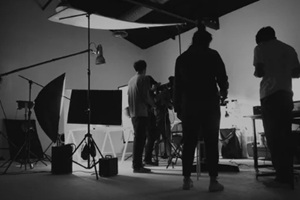 The film industry is one of the most thriving sectors in the U.S. economy and worldwide, generating hundreds of billions of dollars. However, with this thriving success comes high levels of risk as well. From lost footage to cast injuries, a lot can go wrong on and off set. For film studios, a strong blend of insurance coverage is a non-negotiable part of doing business.
The film industry is one of the most thriving sectors in the U.S. economy and worldwide, generating hundreds of billions of dollars. However, with this thriving success comes high levels of risk as well. From lost footage to cast injuries, a lot can go wrong on and off set. For film studios, a strong blend of insurance coverage is a non-negotiable part of doing business.
If you are not yet convinced, it can be helpful to look at some of the most famous accidents and mistakes that could have (or did) ruined productions or bankrupted studios that did not have sufficient insurance to pay the claims.
Here are a few of the film industry’s most significant insurance claims and the types of coverage you can select to avoid a similar fate.
Cast & Crew Insurance
One of the most notorious film incidents in recent memory, 2013’s The Fast and the Furious, saw actor Paul Walker tragically lose his life after leaving a charity event. He and a friend were driving a Porsche when the car swerved out of control, hitting a curb, two trees, and a light post. A fire immediately broke out, and neither man could be saved.
While Paul Walker’s death was a tragedy for everyone who knew him, it also left the film studio in a problematic situation. Because Walker was reprising his role as Brian O’Conner in the film, he was a notable presence, and now the project would need to be done without him.
This type of event can cause significant financial trouble for film studios. The cost of rewriting the script, finding a replacement actor, and reshooting scenes takes time and money that could be covered by cast & crew insurance.
Additionally, Porsche was ordered to pay $50 million in a wrongful death lawsuit to Walker’s daughter, a glimpse into just how high the financial consequences can become when something goes wrong. The film studio would have shouldered that bill if the event had happened due to a filming accident instead.
Business Interruption Insurance
 Perhaps the incident that stirred the emotions of the most people was Carrie Fisher’s death in 2016. This irreplaceable actress was most known for her role as Princess Leia in the Star Wars franchise, and she was beloved for this role. When she passed away, LucasFilm could not locate a replacement for this iconic face.
Perhaps the incident that stirred the emotions of the most people was Carrie Fisher’s death in 2016. This irreplaceable actress was most known for her role as Princess Leia in the Star Wars franchise, and she was beloved for this role. When she passed away, LucasFilm could not locate a replacement for this iconic face.
While the actress’ life insurance policy paid out $50 million, LucasFilm spent much more on creating a CGI (computer-generated imagery) version of the actress. With a single second of CGI costing thousands of dollars, this was a tall ask for the studio, and insurance coverage could have helped bridge the gap.
Additionally, business interruption insurance for film studios would have been invaluable here, as it could cover the bills associated with the delayed production due to Fisher’s departure (and the resulting shift of the project timeline that could result in other unexpected fees).
Third-Party Liability Insurance
The fatal shooting by Alec Baldwin on the set of Rust still echoes in the minds of many movie fans, as it was incredibly recent in 2021. Baldwin, believing the prop gun was not loaded, accidentally aimed it at cinematographer Halyna Hutchins, who succumbed to her injuries.
Third-party liability insurance would cover this type of incident, which can include bodily injury. However, other policies, such as workers’ compensation, can also assist by providing the family with the funds necessary to handle the funeral and related expenses.
So far, crewmembers have been responsible for $1.15 million in settlements, plus additional payment of an annuity to the victim’s minor child.
During productions, whether the studio or specific individuals are responsible for these costs depends on the context of the situation. In the case of Rust, actor Alec Baldwin had a suit filed against him, but many film studios need to rely on their liability insurance to cover lawsuits related to crew deaths during filming.
Protect Your Film With DICE Insurance
 Many types of film insurance are necessary to protect a production from significant financial risk. In addition to professional liability insurance, business interruption insurance, and cast and crew insurance, most studios benefit from auto coverage, errors and omissions insurance, and equipment insurance.
Many types of film insurance are necessary to protect a production from significant financial risk. In addition to professional liability insurance, business interruption insurance, and cast and crew insurance, most studios benefit from auto coverage, errors and omissions insurance, and equipment insurance.
Comprehending which types of policies suit your project without spending money on insurance you don’t need can be overwhelming. That is why MFE Insurance offers customized insurance solutions personalized to your specific film and risks. Contact MFE Insurance today to speak to a film industry professional with years of experience insuring films of all types and sizes.
